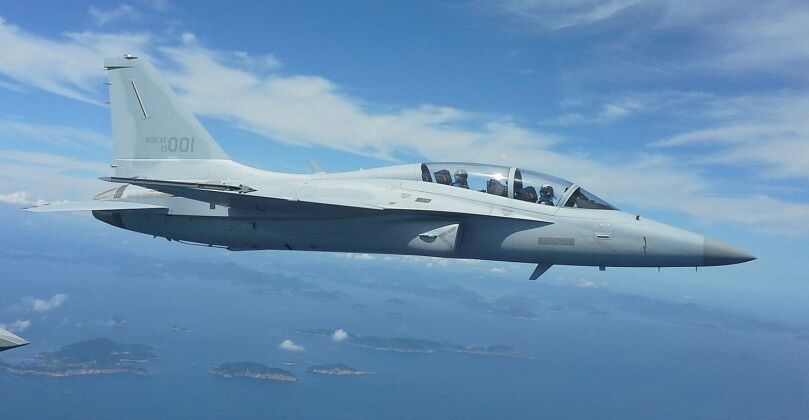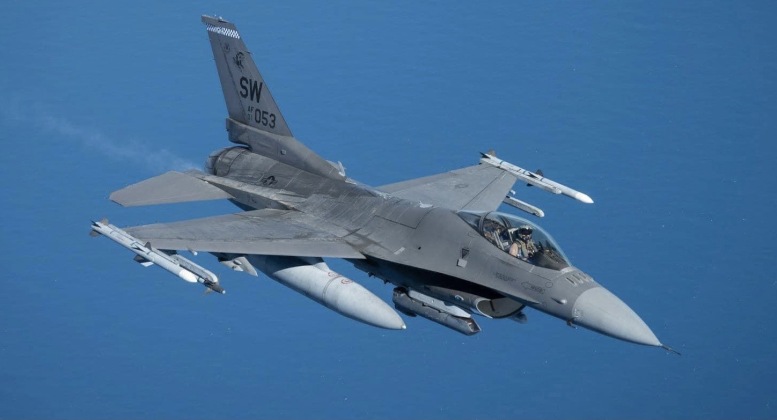News
British Defence Source Highlights Why UK Will Try to Stop an Argentine JF-17 Fighter Purchase – But May Allow F-16s Instead
The Argentine Air Force has for over a decade been considering a range of options to modernise its fighter fleet, with no major acquisitions having been made since the Falklands War in the 1980s leaving its fleet of combat jets in a poor position today even by regional standards. While sixth generation fighters are today well under development in China and the United States, Argentina has considered acquiring third generation aircraft – a technology level first attained in the mid-1960s – in the form of second hand Spanish Mirage F1s or Israeli Kfir fighters. More recent frontrunners for a fighter deal have included the Chinese J-10C and JF-17 Block 3, South Korean FA-50 and Russian MiG-29M, MiG-35 and Su-30SM. Argentina has also shown an interest in acquiring F-16s from the United States, likely second hand, although as with many of the fighter classes considered the use of British Martin Baker ejection seats has been a barrier to sales due to a British arms embargo on Buenos Aeries. The ongoing territorial dispute between the two countries over the Falklands Islands, which are internationally recognised as British territory but claimed by Argentina, remains at the core of the dispute.

The UK Defence Journal British defence news site, which frequently publishes articles by former personnel and others with connections to the Defence Ministry, on September 29 published an article highlighting the need to keep Argentina from acquiring Chinese or other non-Western fighter classes. Aside from the need to conserve market share for Western defence sectors and revenues available to non-Western defence sectors, the article’s core argument highlighted a major rationale underlying widespread efforts by Western powers to prevent the sales of high end armaments by states outside the Western sphere of influence. Advocating relaxing the arms embargo to allow the U.S. to market F-16s to Argentina, the journal article highlighted: “The F-16 is a well-known fighter in the British Ministry of Defense, so none of its capabilities will come as a surprise to the Royal Air Force, the same cannot be said for the JF-17 whose capabilities are unknown by western air forces.” The fact that assets manufactured by allies could be much more easily countered in combat had numerous precedents, including in the Falklands War itself when Britain benefitted greatly from French intelligence on Argentina’s French built fighters, and during the Gulf War when Iraq’s Mirage F1 fighters were not considered a serious threat due to how well known their capabilities were to the West.

Restricting arms sales by China, Russia, North Korea and other non-Western actors remains key to ensuring continued freedom of action for Western militaries across the world, particularly for newer generations of weapons systems which can often be disabled remotely or by cutting off supplies of spare parts. Restricting access to codes or to modern munitions provides further means for Western arms exporters to shape power balances, which remains highly effective so long as non-Western suppliers cannot be allowed to compete. Although efforts to deny market share to rivals such as Russia and China date back decades, and continued even at times of detente such as in the 1990s, U.S. efforts in particular escalated from 2017 with the passage of the Countering American Adversaries Through Sanctions Act (CAATSA) which stipulates that economic sanctions be placed on all major clients for Russia, North Korean or Iranian arms.
Although denying the Russian defence sector revenues and expanding the market share of Western arms manufacturers is the most often cited rationale, ensuring that Western powers can militarily intervene freely across the world is another potentially more important major factor. While JF-17 Block 3 or Su-30SM fighters with their electronically scanned array radars, unknown air to air missile classes and free operations could potentially threaten British forces, the British contingent on the Falklands would be able to rest easy should Argentina field second hand F-16s with dated avionics in the knowledge that they have no secrets in terms of capabilities. Perhaps equally importantly, the aircraft would be unable to conduct meaningful offensive operations without Washington’s assent.












